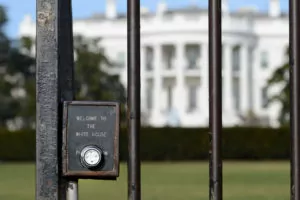 In an opinion issued on Tuesday, Montejo v. Louisiana, — S.Ct. —-, 2009 WL 1443049 (2009), the Supreme Court removed a layer of protection of criminal defendants against coercive and badgering police interrogations by overruling, Michigan v. Jackson, 475 U.S. 625, 106 S.Ct. 1404 (1986), in which the Court had held that “if police initiate interrogation after a defendant’s assertion, at an arraignment or similar proceeding, of his right to counsel, any waiver of the defendant’s right to counsel for that police-initiated interrogation is invalid.”
In an opinion issued on Tuesday, Montejo v. Louisiana, — S.Ct. —-, 2009 WL 1443049 (2009), the Supreme Court removed a layer of protection of criminal defendants against coercive and badgering police interrogations by overruling, Michigan v. Jackson, 475 U.S. 625, 106 S.Ct. 1404 (1986), in which the Court had held that “if police initiate interrogation after a defendant’s assertion, at an arraignment or similar proceeding, of his right to counsel, any waiver of the defendant’s right to counsel for that police-initiated interrogation is invalid.”
The petitioner in Montejo was arrested in connection with a robbery and murder and waived his rights pursuant to Miranda v. Arizona, 384 U.S. 436, 86 S.Ct. 1602 (1966), while being interrogated by police detectives. A preliminary hearing was then held in which the court ordered an indigent defender to represent the petitioner. After the hearing, two detectives visited the petitioner and requested that the petitioner lead them to the murder weapon. The detectives read the petitioner his Miranda rights, and the petitioner proceeded to go along with the detectives, writing an inculpatory letter of apology to the widow of the victim in the process. Only following this excursion did the petitioner meet his court-appointed attorney and consult with him. The State admitted the petitioner’s letter of apology against him at trial, and the petitioner was convicted of first degree murder and sentenced to death.
The petitioner appealede, arguing that the State’s admission of the letter was error pursuant toJackson. The Louisiana Supreme Court held that Jackson is not triggered unless and until a defendant has actually requested a lawyer or has otherwise asserted his Sixth Amendment right to counsel. It held that because the court had appointed the petitioner counsel while the petitioner stood mute, the petitioner had not sufficiently asserted his right to counsel. The Court affirmed his conviction and the Supreme Court granted certiorari.
Justice Scalia, writing for the majority, observed that some States require an indigent defendant to affirmatively request counsel before an appointment is made, while other States automatically appoint counsel upon a finding of indigency. Justice Scalia recognized the problem that “Defendants in States that automatically appoint counsel would have no opportunity to invoke their rights and trigger Jackson, while those in other States, effectively instructed by the court to request counsel, would be lucky winners.” The majority rejected the petitioner’s position that, once a defendant is represented by counsel, police may not initiate any further interrogation.
The majority proceeded to overrule Jackson and its holding that waivers of a defendant’s right to counsel after the right to counsel is asserted are presumed invalid. The Court noted that it had created the presumption in Jackson by making an analogy to a similar prophylactic rule which the Court had established in Edwards v. Arizona, 451 U.S. 477, 101 S.Ct. 1880 (1981), for the Fifth Amendment right to have counsel present at any custodial interrogation under Miranda. The majority held that where a defendant does not invoke his right to counsel, such as where a court appoints counsel in the absence of any request by the defendant,there is no initial election “that must be preserved through a prophylactic rule against later waivers.” It noted that the benefits of the prophylactic rule of Jackson were outweighed by its costs in “hindering “society’s compelling interest in finding, convicting, and punishing those who violate the law.” The majority observed that, even without the rule of Jackson, defendants are still entitled to the protections of Miranda, Edwardsand Minnick v. Mississippi, 498 U.S. 146, 151, 111 S.Ct. 486 (1990). It held that “Jackson not only ‘operates to invalidate a confession given by the free choice of suspects who have received proper advice of their Miranda rights but waived them nonetheless,’ … but also deters law enforcement officers from even trying to obtain voluntary confessions.”
Justices Stevens, Souter, Ginsburg and Breyer all dissented.